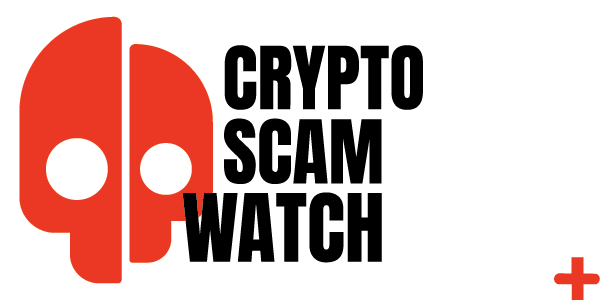
Communication
Investment
Platform
Security
Miscellaneous
Reviews
Compare the wallets
Top WalletsTrezor
Trezor Safe 5BlockStream
BlockStream JadeLedger
Ledger Nano XSafePal
SafePal S1 ProEllipal
Ellipal Titan 2

| Entity | Related Terms |
|---|---|
| Hailey Welch | Hawk Tuah girl, $HAWK coin, influencer scam |
| $HAWK | Cryptocurrency, meme coin, Solana blockchain |
| Coffeezilla | Stephen Findeisen, crypto investigations |
| SEC | Securities and Exchange Commission, crypto fraud |
| Solana blockchain | Crypto platform, token launch site |

| Entity | Related Search Terms |
|---|---|
| North Korean hackers | Lazarus Group, Sapphire Sleet |
| Crypto theft | Blockchain vulnerabilities, AI in cybersecurity |
| Sapphire Sleet | North Korea, cybercrime operations |
| Lazarus Group | North Korean state hackers |
| Microsoft Threat Intelligence | Cybersecurity, DPRK network exploitation |
| Bankman-Fried | FTX scandal, Insiders Avoidance Complaint |
| FTX Trading Ltd. | Alameda Research, crypto lawsuits |
| FBI | Cybercrime investigation, sanctions |
| Cyberwarcon | Cybersecurity conference, global collaboration |

| Entity | Related Terms |
|---|---|
| Ontario Provincial Police | Project Atlas, Canada |
| RCMP | Nova Scotia, Halifax |
| Nova Scotia Securities Commission (NSSC) | Investment fraud regulations |
| Approval Phishing | Crypto scams, wallet access fraud |
| Cryptocurrency wallets | Bitcoin scams, investment platforms |
| Etherscan Token Approval Tool | Crypto security, scam prevention |

| Entity | Related Search Terms |
|---|---|
| Ohio Scam | $425K crypto fraud, Tether scam |
| Provo Scam | Aerodrome phishing, MEXC Global |
| Pennsylvania | $18K crypto theft, link phishing |
| Elyria Scam | $400K stolen, laptop compromise |
| Tether (USDT) | Stolen crypto, USDT recovery |
| MEXC Global | Crypto fraud, fund tracing |
| FBI Cleveland | Crypto investigations |

| Entity | Related Search Terms |
|---|---|
| South Korean Police | Gyeonggi Nambu Provincial Police, arrests |
| Mr. A | mastermind, extradition from Australia |
| Gyeonggi Nambu Provincial Police | South Korea, crypto investigation |
| 28 Virtual Tokens | worthless tokens, high returns promise |
| Investment Consulting Firms | fraudulent consulting, crypto scam promotions |
| YouTube Channel | social media, crypto fraud targeting |
| Bitcoin | 22 bitcoins seized, cryptocurrency fraud |
| Overseas Crypto Exchanges | market manipulation, token inflation |
| Digital Advertising | personal data misuse, 9 million phone numbers |
| Middle-aged and Elderly Victims | targeted demographics, vulnerable investors |

| Entity | Related Search Terms |
|---|---|
| Truth Terminal | Truth Terminal hack, Truth Terminal crypto |
| Andy Anyyro | Andy Anyyro X account, Truth Terminal founder |
| Blackrooms (B1) | Blackrooms token, B1 scam token |
| X (formerly Twitter) | X account hack, social media crypto scams |
| Telegram | Telegram crypto pump, Telegram scam group |
| Crypto scammers | Cryptocurrency scam, social media fraud |

| Entity | Related Terms |
|---|---|
| Tether | USDT, stablecoin, Bitcoin reserves |
| Bitcoin | BTC, cryptocurrency, digital asset |
| U.S. authorities | regulatory probe, compliance, oversight |
| Crypto community | social media, opinions, reactions |

| Entity | Related Search Terms |
|---|---|
| Hong Kong Police Force | HKPF crypto scam bust |
| AI-Powered Scam | AI romance scam, deepfake crypto fraud |
| $46 Million Crypto Scam | Cryptocurrency fraud, romance investment scam |
| Fang Chiu | Head of fraudulent operation, mastermind |
| New Territories South | Location of major fraud activity |
| Singapore, Taiwan, India | International scam ring links |


| Entity | Related Search Terms |
|---|---|
| FBI | FBI cybercrime warning, deepfake scams |
| Elon Musk | Elon Musk deepfake, cryptocurrency scam |
| Austin Ennis | Deepfake victim, cryptocurrency fraud |
| Deepfakes | AI-generated fraud, synthetic media scams |
| Cryptocurrency | Crypto investment scams, cryptocurrency fraud |
| Influencers | Social media hacks, influencer account hijacks |

| Entity | Related Search Terms |
|---|---|
| Hong Kong Police | Hong Kong law enforcement, police raid |
| AI Deepfakes | Deepfake technology, AI-generated images |
| Triad Groups | Hong Kong triad, organized crime |
| Cryptocurrency Platforms | Fake crypto platforms, investment fraud |
| Pig Butchering Scam | Romance scams, crypto pig butchering |
| Sun Yee On Triad (Mentioned) | Triad group, crime syndicates |
| $46 Million | Cryptocurrency fraud, money defrauded |
| Victims | Investors, romance scam victims |
| Social Media Platforms | Romance scams, AI scams |
Quick Tips for Spotting Scams:

Red Flag | Description |
|---|---|
Private Key Requests | Legit businesses do not ask for them. |
Unverified Payments | Avoid sending crypto to unknown parties. |
Fake Giveaways | Don't believe promises of multiplied investments. |
Stay informed and protect your digital assets by remaining alert and using available resources to report suspicious activities.